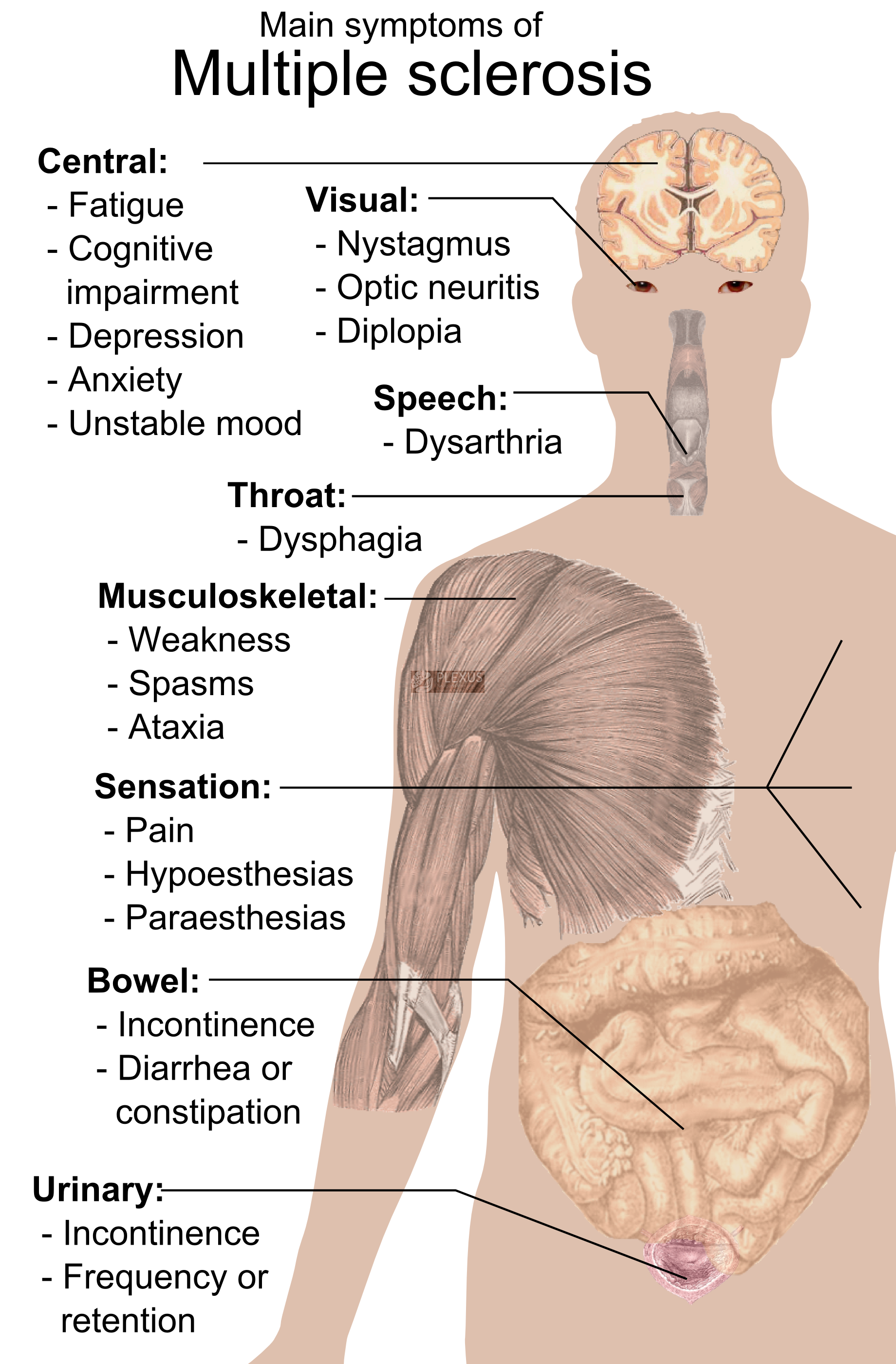
In 2015 alone, Multiple Sclerosis (MS) affected about 2.3 million people globally and claimed over 18,900 lives. The impact this neurological disease has on people across the world is a source of both curiosity and anxiety. On the occasion of World Multiple Sclerosis Day (May 30), we hope to answer some of the most urgent and important questions surrounding MS through these FAQs.
What is MS?
Derived from the term ‘sclerae’ or lesions, Multiple Sclerosis is a progressive immune-mediated disorder in which the body’s immune system attacks the central nervous system. As a result, the nerve fibres and their myelin sheath — a fatty cover over them — sustain damage, exposing the nerves and hampering transmission of signals from the brain to the rest of the body. Its symptoms become more apparent with time and can be physically destabilizing.
Who can get MS?
While experts are yet to identify the causes of MS, most believe it to be an autoimmune illness, meaning that it is an abnormal response of the immune system to a naturally occurring antigen. Some of MS’ commonly accepted risk factors include:
- Geography — population living away from the equator, above the temperate regions, usually report more cases
- Age — people between 20 and 60 years, although it can also occur in younger children and significantly younger adults too
- Sex — women have been found to be more susceptible than men
What are the early symptoms of MS?
Just like other neurological diseases, MS’ symptoms include:
- Numbness, tingling, or spasms in the muscles
- Motor dysfunction that causes unstable movements
- Blurry vision and pain in the eyes caused by optic nerve damage
- Bowel and bladder problems such as constipation or incontinence
- Fatigue
How is MS diagnosed?
Medical experts have not yet established laboratory tests that can conclusively diagnose MS. Instead, doctors depend on a combination of medical history analysis, neurological exams, and tests such as MRIs, evoked potentials (EP), and spinal fluid analysis to find out whether a person is susceptible to MS or not.
What are the different types of MS?
Based on how the symptoms progress and change their course, experts have recognized the following types of MS:
- Clinically Isolated Syndrome (CIS)
This episode is typically how all types of MS begin — with the body’s immune system attacking the myelin sheath on the spinal cord. This may turn into MS if the attack has caused lesions on the nervous system. - Relapsing Remitting MS (RRMS)
As the name suggests, patients experience frequent relapses of intense neurological symptoms, followed by periods of remissions — when these symptoms almost entirely disappear. During these remission phases, the symptoms do not show any signs of progressing further. - Primary Progressive MS (PPMS)
This is the rarest form of MS. In cases of PPMS, the patient’s condition tends to get worse over time, and they experience very few remission phases. - Secondary Progressive MS (SPMS)
This is a progression from RRMS, in which patients’ symptoms worsen steadily over time and the remission periods get shorter and fewer in between.
How will MS impact the patient\’s life?
Evidence collected over time has proven that MS doesn’t affect life expectancy. Its symptoms, even as they become severe, rarely ever disable the patient. This means that people with MS have a fair chance at living a long and fruitful life. With the best available treatment and a healthy lifestyle, anyone with MS can continue leading their lives as normally as possible. General prescriptions for them include getting sufficient sleep, reducing stress, maintaining a healthy diet, and seeking support whenever needed.
How can Plexus help?
Our speciality, stem cell therapy, is bringing health back to the lives of many people around the world. In the case of MS, Autologous Haematopoietic Stem Cell Transplantation (AHSCT) extracts stem cells from the patient’s body (specifically from the bone marrow) and uses their regenerative properties to heal the nerve damage. Along with such progressive medical options, our neurologists and allied health professionals such as physiotherapists and occupational therapists, come together to facilitate a faster recovery of all our patients.
Are there any success stories of treating MS at Plexus?
Some of our patients who have made it through the painstaking journey from diagnosis to recovery are:
We hope these Frequently Asked Questions have answered your queries about MS. If you seek more clarity on how the disease can change one’s life and what Plexus can do to help, visit our Centre or book an appointment today.











